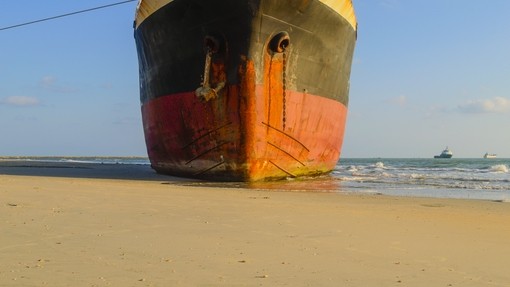Warner -v- Scapa Flow Charters [2018] UKSC 52

Details
In this case the Supreme Court (Scotland) considered an appeal from Scapa Flow Charters arguing that they were not liable under the Athens Convention 1974 as the two year time bar could not be suspended under Scots law where the claimant is a child.
Factual background
Mr Warner chartered a vessel operated by Scapa Flow Charters (‘SFC’). On 14 August 2012 whilst on the vessel Mr Warner died as a result of a diving accident. His wife brought two claims; a claim in her own name and one as guardian of her young son.
At the time of the incident, the applicable liability regime in the United Kingdom for any personal injury to passengers during the course of carriage caused by fault or neglect of the carrier was the Convention relating to the Carriage of Passengers and their Luggage by Sea 1974 (‘the Athens Convention’).
Section 16 of the Athens Convention provided the following time limits:
- Any action for damages arising out of the death of or personal injury to a passenger… shall be time-barred after a period of two years.
- The limitation period shall be calculated … in the case of death occurring during carriage, from the date when the passenger should have disembarked.
- The law of the court seised of the case shall govern the grounds of suspension and interruption of limitation periods, but in no case shall an action under this convention be brought after the expiration of a period of three years from… when disembarkation should have taken place.
It was agreed between the parties that Mr Warner would have disembarked on the 18 August 2012. Mrs Warner did not raise an action until 14 May 2015. SFC averred it had a time bar defence.
Mrs Warner argued that:
- she was not aware her husband’s death was caused by SFC until a report published in December 2013; and
- in relation to her son’s claim, as the law of the court seised (the lex fori) was Scots Law, s.18 of the Prescription and Limitation (Scotland) Act 1973 applied:
‘where the pursuer is a relative of the deceased, there shall be disregarded in the computation of the period specified … any time during which the relative was under legal disability by reason of non-age…’.
Therefore as her son was a child, the time limit for his action should be extended, to the maximum amount allowed by the Athens Convention article 16(3), to three years.
At first instance, the Lord Ordinary upheld the time bar defence and dismissed both actions. On appeal, the Inner House upheld the Lord Ordinary’s opinion that Mrs Warner’s own claim was time barred but reversed the order in relation to Mrs Warner’s claim as her son’s guardian, finding that the claim on behalf of her son was not time barred.
SFC appealed this decision.
Legal issues
Lady Hale, Lords Reed, Sumption, Hodge and Briggs dismissed the appeal and held that Mrs Warner’s claim as her son’s guardian was not time barred.
In their judgment the Supreme Court analysed the two principal contentions SFC had advanced. Both contentions supported SFC’s argument that a suspension or an interruption, pursuant to Article 16(3) of the Athens Convention, operated only when the domestic rule paused the running of time which had already commenced but not otherwise.
SFC submitted that section 18 of the Prescription and Limitation (Scotland) Act 1973 postponed the start of the limitation period, as opposed to pausing time already running. It therefore did not contain grounds of suspension and interruption and therefore the claim should be time barred.
Contention one – The natural meaning of the words ‘grounds of suspension and interruption of limitation periods’ in article 16(3) [of the Athens Convention] was that they were grounds which gave rise to a break in a period or course of events which was already in train.
The Court rejected this argument and held that ‘suspension’ had a broader meaning in several legal systems and could not be restricted to time limits already running. They further clarified that the existence of a ground in a domestic limitation statute, such as section 18 of the Prescription and Limitation (Scotland) Act 1973, which suspended the limitation periods set out in that statute, was sufficient to bring Athens Convention article 16(3) into operation and extend the time bar by one year.
Contention two – The words ‘suspension’ and an ‘interruption’ had a technical meaning derived from certain civil law systems where both only occurred once a limitation period started.
The Court rejected contention two as well. They held that it was not appropriate to look at the domestic law of certain civil law systems for technical meaning of the words in an international convention which was designed to be used in common law systems as well. In any event there was no uniformity across civil law systems in the use of the expression ‘suspension’ in 1974 when the Athens Convention was adopted.
Furthermore the Court held that if SFC’s interpretation was correct it would give rise to serious anomalies and that the words in article 16(3) were sufficiently wide to cover domestic rules which postponed the start of a limitation period as well as those which stopped the clock after the limitation period had begun.
As a result, due to section 18 of the Prescription and Limitation (Scotland) Act 1973 falling within the meaning of suspension in article 16(3) of the Athens Convention, Mrs Warner had three years to bring the claim on behalf of her son. As the claim was brought within the three years, the claim was not time barred and the appeal was dismissed.
Case comment
This is a Scots law case and currently under English law the position remains that the two year time period is mandatory for all claimants. This is despite the fact that English law has a similar postponement provision in the Limitation Act 1980.
However, in light of this ruling, how long this will endure as English law, remains to be seen and we expect to see claimant solicitors petitioning that the principles of this case should be applicable in English law.
This article originally appeared in the November 2018 edition of shipping case digest. Other articles include:
Evergreen Marine (UK) Limited -v- Nautical Challenge Limited [2018] EWCA Civ 2173
Strike out application success in Admiralty personal injury claim commenced in the County Court






